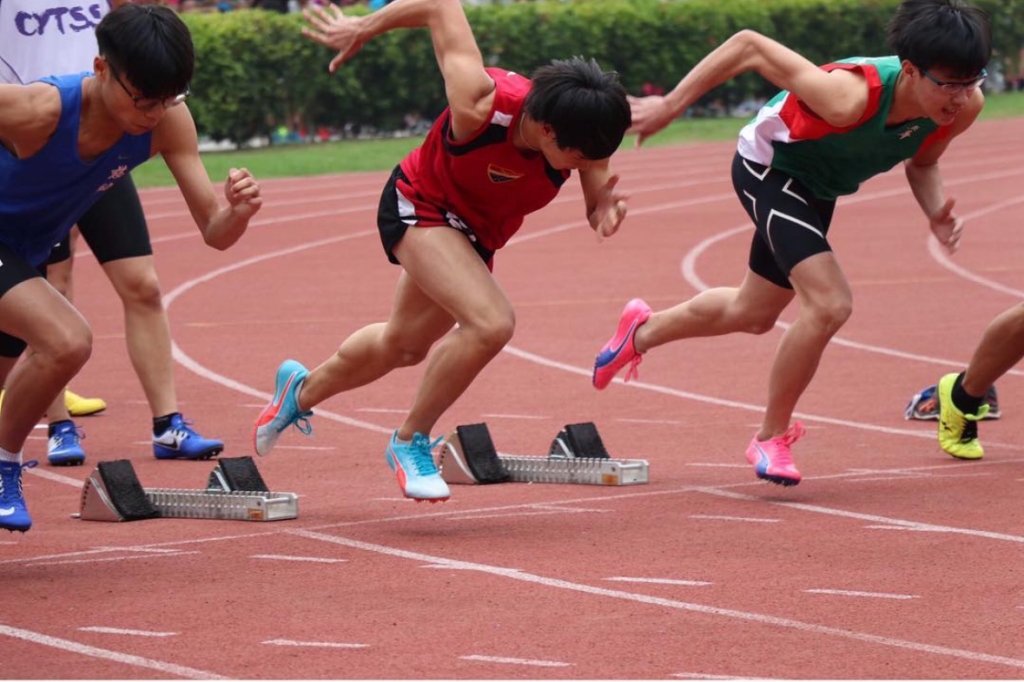Alvin Ho: The relentless pursuit of speed
- Joanna Chan
- Feb 13, 2025
- 3 min read
Updated: Nov 11, 2025
On the track, every second counts. For Alvin Ho, sprinting isn’t just about speed — it’s about proving himself.
At 22, he dreams of making the national team, but like many student athletes in Taiwan, he faces the challenge of balancing academics with elite training. As a student of physical education and sport sciences at National Taiwan Normal University, Alvin is carving his own path — one built on determination, discipline, and an unrelenting drive to improve.

A start without expectations
Unlike many top competitors, Alvin’s journey into sprinting was not pre-planned. “I joined my school’s athletics team just to try it out — there were no tryouts, so I thought, why not?” he recalls. But before he noticed it, he was drawn in by the challenge of personal achievement.
“I liked the sense of accomplishment from competing alone,” he explains. “In team sports, your success depends on others, but in track and field, everything is up to you.” What started as a casual decision quickly turned into a serious commitment. Now, every day revolves around training, recovery, and the pursuit of improvement.
The demands of training and competition
Training as a sprinter demands both physical endurance and mental resilience. For Alvin, every session is a test of speed, strength, and consistency.
His daily routine consists of three hours of intensive training, combining sprints, resistance drills, and explosive strength exercises. “If you stop, you fall behind,” he says. “It’s frustrating, but you have no choice but to keep pushing.”
Sprint training isn’t just about running — it’s a balance of power and precision. Some days focus on acceleration drills, while others are dedicated to weight training, building explosive power through Olympic lifts like snatches and power cleans. “It’s not just about running fast, it’s about training your body to generate speed efficiently,” Alvin explains.
With such an intense schedule, recovery is just as important as the workout itself. But injuries are an unavoidable part of competition. “There’s no real way to accept it. You just keep going,” he says. “You can’t afford to let the gap between you and others get too big.”
The pressure to stay in peak condition is relentless, but Alvin embraces the challenge. For him, every training session is another step toward his ultimate goal — reaching the national stage.
Taiwan’s sports culture: A system for the elite?
Alvin’s experiences highlight some of the challenges student athletes face in Taiwan’s sports system. “Taiwan supports sports, but mostly for those at the top,” he says. “A lot of resources go to elite athletes, but those still developing often don’t get enough support.”
One area he believes could improve is the coaching approach. “Coaches here don’t always encourage open discussions,” he explains. “Sometimes, athletes have questions about their training or technique, but because of respect or pride, coaches don’t always take feedback well.”
He also sees a need for a shift in training methods. “Many Taiwanese coaches focus too much on endurance rather than adjusting technique,” Alvin notes. “It leads to athletes blindly following training programs instead of thinking critically about how to improve.”
Despite these challenges, he remains optimistic. He believes that small changes — like fostering better communication between athletes and coaches — could have a big impact on Taiwan’s athletic development.
The road ahead: Chasing a national dream
Despite the obstacles, Alvin remains focused on his goal: making the national team. “I hope to compete at an international level one day,” he says. “That’s the dream.”
Beyond his own ambitions, he hopes Taiwan’s sports culture will continue to improve. “If there’s one thing I’d change, it’s making coaching more open-minded,” he says. “Athletes should be encouraged to think critically, not just follow orders. That’s how real progress happens.”
For now, Alvin remains focused on training, improving, and closing the gap between where he is and where he wants to be.
On the track and in life, Alvin Ho refuses to slow down.